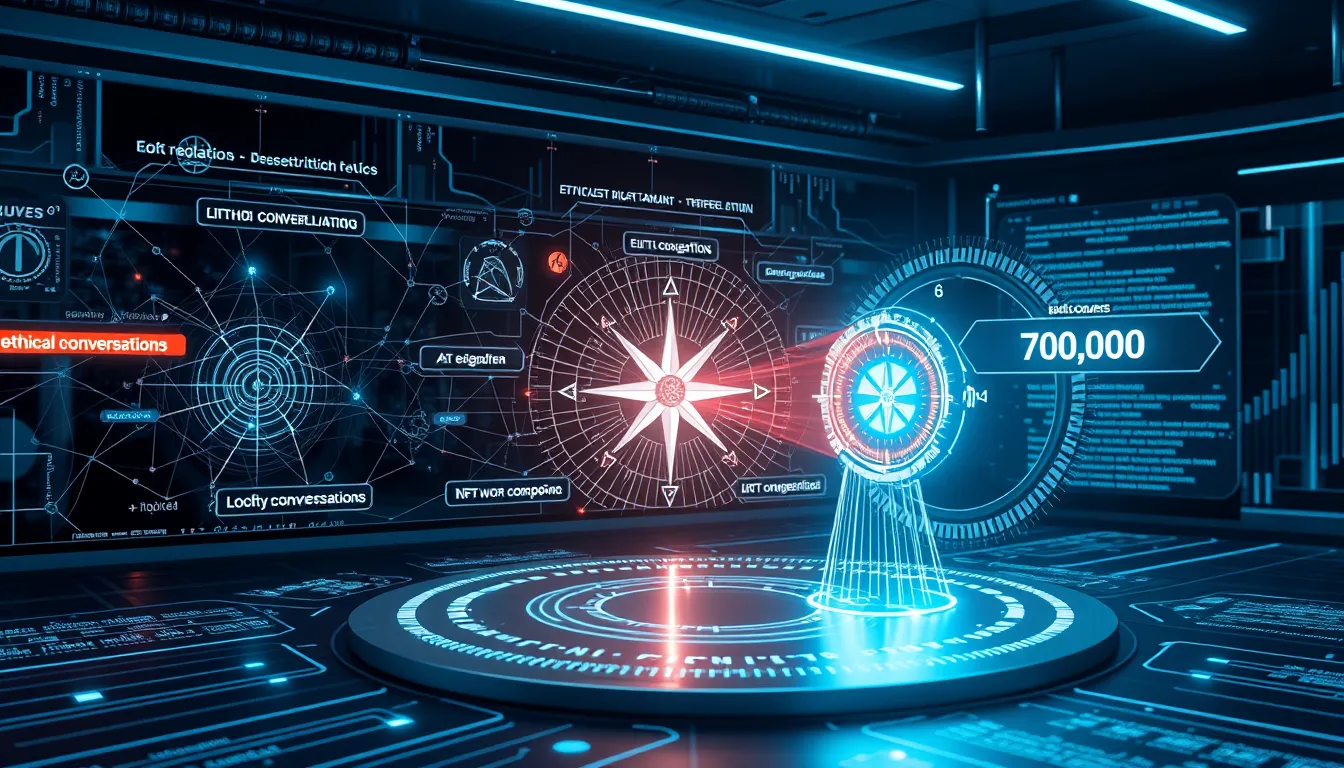Now Reading: Demis Hassabis & Google DeepMind: AI Breakthroughs Unleashed
-
01
Demis Hassabis & Google DeepMind: AI Breakthroughs Unleashed
Demis Hassabis & Google DeepMind: AI Breakthroughs Unleashed

Demis Hassabis & Google DeepMind: AI Breakthroughs Unleashed
In a riveting display of transformative AI research, Demis Hassabis, the visionary CEO at Google DeepMind, recently shared groundbreaking insights that are reshaping the world of artificial intelligence. The conversation, which aired on CBS’ renowned 60 Minutes, offered viewers a behind-the-scenes look into innovative AI projects that span from scientific research to real-time decision-making applications. This article delves into the key moments of the interview, explores the responsible AI development challenges, and highlights the ethical implications of artificial intelligence.
CBS 60 Minutes AI Interview and Transformative Innovations
During the CBS 60 Minutes AI interview, Demis Hassabis captivated audiences with a comprehensive discussion on the evolution of AI. His narrative seamlessly blended technical achievement with a vision for future possibilities. At the heart of the conversation was the emphasis on artificial intelligence breakthroughs that are not only pushing scientific boundaries but are also setting new standards in how technology can improve lives.
Key aspects covered in the interview included:
- The evolution of deep learning and neural networks
- Groundbreaking projects at Google DeepMind
- The integration of AI in solving global challenges such as climate change and healthcare
This in-depth account not only celebrated technological progress but also showcased the intricate dance between scientific innovation and ethical responsibility.
Innovative AI Projects by Google DeepMind
At the core of Google DeepMind’s success is a series of innovative AI projects that have redefined what machines can achieve. Under the leadership of Demis Hassabis, these projects emphasize the potential of artificial intelligence breakthroughs to transform industries. By harnessing the power of data and sophisticated algorithms, Google DeepMind is at the forefront of developing systems that mimic human cognition and decision-making capabilities.
The team’s work has garnered global attention, not only for its technical prowess but also for its commitment to responsible AI development. Their projects stand as exemplars of how rigorous research and ethical considerations can converge to produce technology that benefits society at large.
Responsible AI Development Challenges and Ethical Implications
While the rapid progress in AI technology presents countless opportunities, it also brings forward challenges, particularly concerning responsible AI development. Demis Hassabis highlighted several critical considerations during the interview:
- Transparency and Testing: The importance of making AI systems understandable and subjecting them to extensive real-world testing.
- Balancing Innovation and Safety: Encouraging technological advancements while ensuring that they are deployed safely and ethically.
- Collaborative Regulation: Bringing together experts from various fields to form guidelines that govern the development and implementation of AI.
Furthermore, Hassabis stressed that ethical implications of artificial intelligence must always be at the forefront of research initiatives. He argued that as we advance technologically, equal emphasis must be placed on ensuring privacy, reducing biases, and maintaining a human-centric approach to innovation.
AI’s Role in Scientific and Technological Advancements
The interview provided a broader perspective on how artificial intelligence breakthroughs are intertwining with modern scientific research. Google DeepMind is not only advancing technology but is also redefining traditional research methodologies. By leveraging AI in deep learning, the company is enabling faster, more precise diagnostic tools in healthcare and optimizing complex decision-making processes in various sectors.
For instance, real-time decision-making AI applications are becoming critical in emergency services and urban planning. These systems analyze vast amounts of data, providing actionable insights that lead to more efficient problem-solving. The transformative AI research at Google DeepMind is a testimony to the power of harnessing technology to address multifaceted challenges in today’s interconnected world.
Bridging the Gap Between Technology and Ethical Responsibility
Central to the discussion is the need for a balanced approach that bridges aggressive technological advancement with robust ethical safeguards. Responsible AI development challenges remain a focal point for researchers and policymakers alike. Hassabis’s reflections encourage a broader dialogue on how best to navigate these challenges.
Key takeaways include:
- The necessity for clear ethical frameworks
- Integration of cross-disciplinary expertise in AI development
- The ongoing evolution of regulations to keep pace with rapid innovation
These discussions underline the importance of safeguarding public trust and ensuring that the benefits of AI are accessible to all segments of society.
Conclusion
Demis Hassabis’s dialogue on CBS 60 Minutes offers not just a snapshot of current achievements, but also a thoughtful display of the future of artificial intelligence. His insights, which covered everything from the technical nuts and bolts of deep learning to the ethical implications of modern AI, paint a hopeful picture of an era defined by innovation and responsibility. For readers interested in a deep dive into the world of AI, exploring further into Google DeepMind’s projects, you can visit the official website at https://deepmind.com. Here, you can learn more about the pioneering work being done, along with insights into how the company continues to shape the future of technology.
By examining both the immense potential and the inherent challenges of AI, this piece underscores that the future of artificial intelligence breakthroughs lies at the intersection of relentless innovation and principled stewardship. Whether you’re a technology enthusiast or a professional in the field, understanding these dynamics is essential in navigating the transformative landscape of tomorrow’s AI technology.
In summary, the interview is a valuable resource that provides clarity on the current state and future direction of AI. It reinforces the notion that with responsible development and a commitment to ethical practices, artificial intelligence will continue to drive progress and innovation in ways previously deemed unimaginable.

























